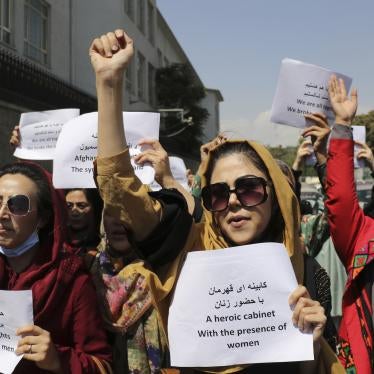On October 9, the United Nations Human Rights Council adopted by consensus a European Union-led resolution renewing the mandate of the UN special rapporteur on human rights in Afghanistan. However, despite consistent appeals from human rights groups, including Human Rights Watch, the resolution does not establish a mechanism to advance accountability for grave human rights abuses that have been committed in the country, including the Taliban’s systemic oppression of Afghan women and girls.
In early September, 90 Afghan and international rights groups appealed to UN member states to establish a mechanism to collect and preserve evidence of international crimes committed in Afghanistan, with a view to supporting accountability efforts, including at the International Criminal Court, the International Court of Justice, and in national courts.
A report by the Office of the UN High Commissioner for Human Rights (OHCHR), presented to the Human Rights Council in September, identified the need to address deeply entrenched impunity for abuses during decades of conflict in Afghanistan as “an essential pillar” of peace and stability. It presented a series of guiding principles that should underpin all accountability efforts, including that they be comprehensive, multidimensional, victim-centered, and gender-responsive. The OHCHR noted the need to ensure the collection and preservation of evidence of abuses to aid future accountability and transitional justice processes.
Despite the failure to establish a mechanism this council session, the resolution adopted essentially provides a blueprint for the action that is needed going forward.
It acknowledges the need for further action to advance accountability for past and ongoing international crimes, grounded in the OHCHR’s guiding principles, including potentially through the collection and preservation of evidence of crimes under international law. As noted by South Africa when the resolution was adopted, the resolution provides a strong basis on which the Human Rights Council “can and indeed must build going forward.”
As Taliban oppression worsens, it is critical for governments claiming to support human rights and accountability to move from words to action. They should establish an independent accountability mechanism to address past and ongoing abuses in Afghanistan without further delay.









